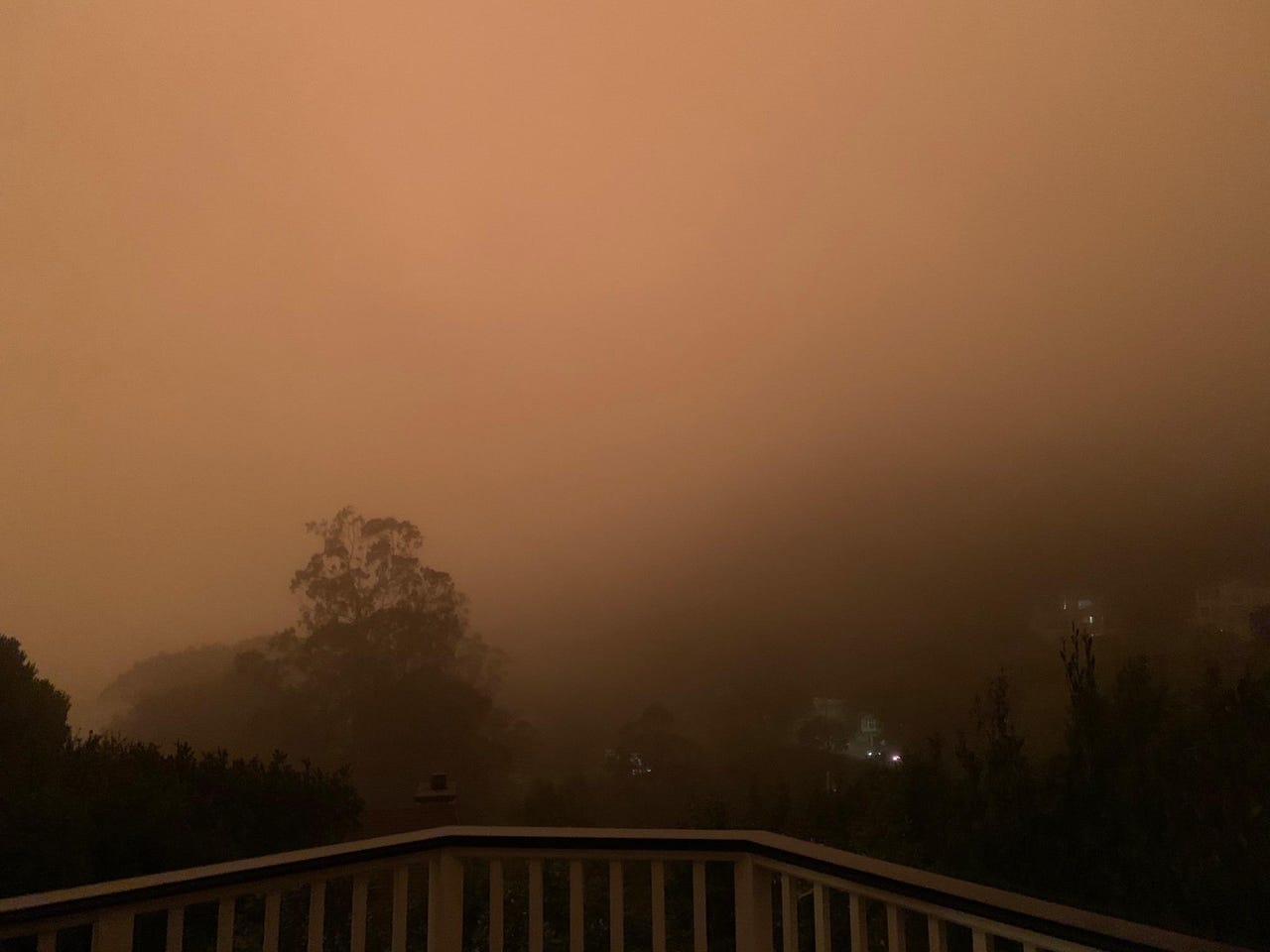I tried to photograph the apocalypse, but my iPhone wouldn't let me

The iPhone XR prefers Victorian beauty.
I was awake, but I already knew this was a day I didn't want.
ZDNET Recommends
My eyes were still shut, as if they were already bracing themselves.
My brain kept insisting it was time to get up, while (what remains of) my emotional side nudged me back to sleep.
My nose was running and I kept sneezing. This wasn't normal.
My brain opened my eyes at 7:17am. Through the bedroom window, I could see nothing but an orange/brown darkness. Welcome to northern California on Sept. 9.
The apocalyptic symbolism was hard to escape. This was the end. Or, at least, what the end would look like when it finally came.
Naturally, there was something I had to do. It was my job as a modern human to record my living nightmare and expose it to my friends. There's little more uplifting than deserving sympathy, and finally getting it.
I showered, rushed upstairs, and grabbed my iPhone XR. They won't believe this in England, Wales, Belgium, Portugal, Croatia, Norway, Las Vegas, and the other places some of my closest friends live.
Finally, they'll understand my whining, my despair, my insistence that America is disappearing into a flaming orange vat.
Clutching my iPhone, I stepped outside and snapped. I let out a scream, then took a photo.
I looked at my phone to see the full glory of doom. Instead, what I saw was something out of Victorian London on a benign January Sunday.
This wasn't what I could see. This wasn't my Hell. This wasn't even purgatory. This was muted beauty. Where was the dark orange? Where was the oppressive darkness?
This was technology manipulating my eyes in the interests of supposed taste. Some engineer's idea of taste.
The AI and other software in my iPhone didn't want me to record what my eyes could actually see -- the Mad Maxian portent of death. Instead, it insisted on a muted version of life, almost pastoral in quality, one that its programmers clearly believe has a higher aesthetic.
Or, rather, one that its programmers believe I will find more beautiful. That's what AI does. It tries to predict what'll make you feel good.
It doesn't understand humanity at all, does it?
Which left me with a deep moral dilemma.
Do I try and manipulate the colors on my sanitized image of horror? Do I cheat the way so many do on Instagram, with the accompanying hashtag #nofilter?
Or do I send the picture as the iPhone created it, using only words to explain that this isn't what I actually saw?
I should find it normal to gussy up the picture. That's what photographers have done for so many years. Yet what if my friends, some of whom might notice these things, realize the picture has been doctored?
What if they accuse me of excessive drama in order to attract their sympathies? What if they then question everything I've ever sent them and told them?
Won't this, to them, seem like one of those emails written by AI? Or one of those newspaper columns?
I realized I wasn't alone in suffering this dilemma. There was Twitterized ululation at the imperfections of phone cameras and their inability to capture true horror.
I wanted to stay faithful to the truth, but if the only way of conveying the truth was by falsification, who was I? What had I become? A tool of technology, there to be manipulated ad infinitum.
I sent my friends the picture I'd taken, with (my own) words explaining that this wasn't at all what the view outside was like.
There was no reaction. I needed pity, for pity's sake.
About 90 minutes later -- no one can wait for pity for too long -- I succumbed to cheating.
I went outside, took another picture, and tried to manipulate it. I didn't manage to capture the right dark orange hue. I did, at least, manage to convey the hellish darkness.
I sent that picture.
Within minutes, a reply from Croatia: "What on Earth is that? Mars? Come here."
From England: "Gosh, will you have to evacuate?"
Soon another, from Vegas: "That red's fake. And the blacks look all wrong."
He's an engineer.
Clearly, I still need to work on my manipulation.
Not quite the right orange, but at least the darkness is real.
